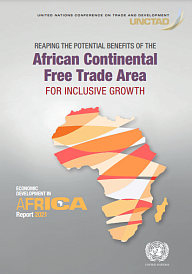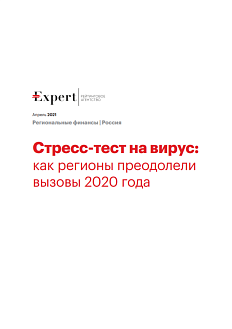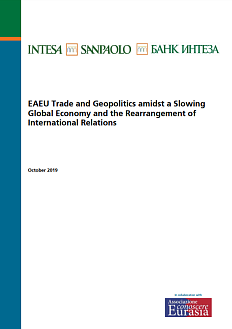The report by UNCTAD examines how recent policy trends and practices, mainly those under the African Continental Free Trade Area, will impact prospects for more inclusive growth, given increasing inequalities both between and within countries in the region and the negative effects of the COVID-19 pandemic.
The Roscongress Foundation presents the salient points of the publication accompanied by fragments of broadcasts of relevant panel discussions from the business programme of international events held by the Roscongress Foundation.
African countries need inclusive growth to deal with inequality and the consequences of the pandemic.
On average, the proportion of households in Africa with an income or consumption level at below USD 1.9 per day (purchasing power parity) declined from 40.2 per cent in 2010 to 34.4 per cent in 2019. With regard to inequality, countries in Africa have a Gini Index ranging from 27.6 per cent (Algeria) to 63.3 per cent (South Africa). The authors of the report emphasize that the pandemic risks jeopardizing many of the growth gains made in recent years, halting the decline in poverty while exacerbating inequality. In addition, members of the African Continental Free Trade Area range from large countries to small countries and include both resource-rich and resource-poor countries, least developed countries and middle-income countries. The process of trade integration and the elimination of tariffs will thus affect these countries differently, both within and among them, and potentially create distributional effects if these asymmetries are not accounted for. A more inclusive African Continental Free Trade Area can become a beacon of continental peace, prosperity and security.
The authors of the report specify that inclusive growth includes elements of income-related inclusive growth and multidimensional inclusive growth; the former, across all segments of the population, has been inclusive (that is, growth that reduces poverty and inequality) in only 17 countries in Africa; poverty-reducing but inequality-increasing in 18 countries; and non-inclusive (that is, growth that does not reduce poverty or inequality) in 14 countries.
Strengthening regional trade integration could help enhance inclusive development.
Removing intra-African tariff and non-tariff barriers under the Free Trade Area could unlock new trade opportunities. Partial tariff liberalization by 2025 under the African Continental Free Trade Area is expected to increase the intra-African export potential by an additional USD 9.2 billion. The scope of the African Continental Free Trade Area for strengthening regional value chains can increase the resilience of countries in Africa in the post-pandemic period, in particular with regard to medical supplies and food products. This may also be relevant with regard to renewable energy because different countries have different energy resources and more intense trade can support the diversification of the energy mix and harness complementarities. This may be important in Africa given the growing prominence of a green growth agenda as part of post-pandemic scenarios. According to UNCTAD, to further increase the inclusivity of intra-African trade, it is also necessary to facilitate the participation of domestic and women-owned enterprises. Facilitating market entrance and reducing the costs of starting a business, as well as strengthening productive linkages between exporters and the domestic economy, are critical for more inclusive growth. Ongoing trade-related frictions, including non-tariff measures, infrastructure gaps and inadequate market information, pose particular burdens on small and medium-sized enterprises and marginalized groups. Firms experience business constraints differently and access to inputs and productive capacities is not equally distributed. Addressing the dominance of a few market actors and structural and regulatory barriers to entering domestic and foreign markets requires long-term cooperation in investment and competition policies. Moreover, some trade barriers entail fixed-cost elements and smaller actors are therefore disproportionately affected, notably with regard to non-tariff measures.
Coherent strategies and correct policy sequencing are key in delivering on the potential of the African Continental Free Trade Area Agreement.
The implementation of the African Continental Free Trade Area starts a new era of trade governance in Africa and should be considered an opportunity to undertake much needed structural reforms across the continent, to support inclusive growth and recovery in the post-pandemic period.
Some of the policy recommendations offered by UNCTAD include promoting market intelligence and efficient trade measures, ensuring that the private sector is a driver of growth, establishing integrated institutional mechanisms for implementation and monitoring, targeting technical and financial support to the least developed countries to address trade constraints, strengthening cooperation at the international and continental levels, ensuring tax justice, etc.
Gain more insights about trade and economy in the Free Trade Areas (FTA) and Trade policy sections of the Roscongress Information and Analytical System, about possible ways to stabilize the economy during a pandemic in the StayHomeEconomy section, and about the development of the African continent in the Africa section.






